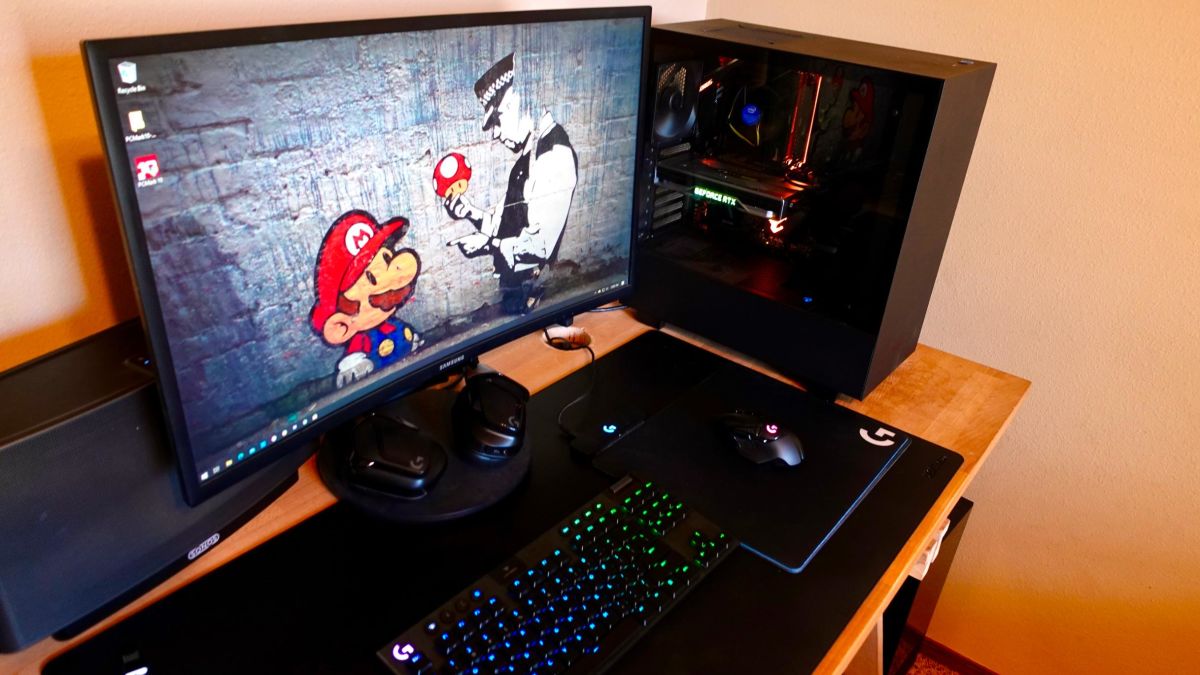
The world of PC gaming has evolved leaps and bound over the last decade. Games have become more immersive than before, and components reach speeds and architecture that is so evolved that it has become even more accessible to the mainstream to dive into enthusiast set-ups. With great innovations and respectable price points, now is a great time for gamers to get the perfect rig that fits their preferences and budgets. You can get a decent rig that plays 1080p gaming for under $500 nowadays, and if you can go above that, you can really build yourself a beast.
It’s a pretty exciting time to get into video games since both AAA and indie developers are coming out with amazing titles that are spearheading the next generation, and multiplayer is thriving as there are now an estimated 2.7 billion gamers in the world. These days, with all of the options available on the market, you have two choices when picking the rig for you — buying prebuilt PCs or building it yourself. You may be wondering, which is the right choice? Each option has its pros or cons, which we’ll break down below.
To Build or Not to Build
The great part of building your own PC together is the level of customization it lends. You pick each part out yourself as long as they are compatible, and this not only makes room for your favorite brands and aesthetic choices but also gives you more leeway in the budget since you can mix and match parts so you can save on some stuff. These days, it’s not unwarranted to get some refurbished pieces and mix them with new parts or combining an older GPU with a newer CPU. As long as you don’t bottleneck yourself and pick sketchy pieces that may not be functional, you have more freedom in this arena (though it’s still recommended to save up for all new components that are “future-proof”).
That said, a lot can go wrong with these sensitive components. It can be a dangerous waste of money if you end up ruining your parts during the process of putting it together or accidentally trying to put together parts that aren’t actually compatible. As long as you read up and do your research, then you shouldn’t really worry too much about the actual building process, though. You may even find that there’s a special satisfaction that comes with putting it together yourself and finally booting it up after your efforts.
If that’s still too intimidating for you, thankfully, there are tons of resources today that can make the process easier while still letting you build (without actually doing the manual labor yourself). Some vendors offer gaming computer tower builds wherein you pick parts, and they put it together for you. Some even offer tools that automatically let you know while you shop online if the parts you’re picking are compatible. It will also inform you of the price as you go on and suggest the best power supply for your chosen rig.
Getting by When You Buy
Today, prebuilt machines also have their merits. It’s not as limited as it used to be. Vendors are privy to the appeal that gaming PCs have in the market now, so they already make great products that cater to this market. This route is arguably easier for beginners to dive into since everything already comes built and specifically chosen to work well together. Hence, you order it, and it works straight out of the box. On top of that, it can actually be a cheaper option if you catch a bundled offer from an OEM.
It’s also a good choice to buy a built computer if you don’t want to tinker around with drivers and install your OS yourself. Plus, any storage drives will likely already be formatted with a prebuilt unit.
The issue here is that many prebuilt computers are often overpriced for the actual performance they have. Even if you get a product within your preferred price range, you may find that it’s underpowered compared to a custom build that you can get for the same value. Too often, people get swayed by the brand name of the OEM, and that’s most of what the user pays for. Although it is guaranteed reliability and performance without assembling it yourself, it comes with an additional price tag.
Essentially, it’s up to you, which you prefer but keep in mind that it’s much more accessible and flexible to build your own custom PC today. That’s not to hate on prebuilt rigs, though, but OEMs are mostly relied on these days for the laptop market. Though the pandemic has significantly impacted desktop sales, this should have no bearing on the availability of parts on the market.
Meta title: Building vs. Buying a Gaming PC: What You Must Consider
meta desc: So you want to dive into the world of PC gaming, but you don’t know if you should build or buy your rig. Read on to know what option is right for you.












